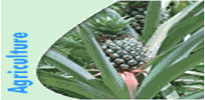Mauritania: The Mauritanian national committee for transparency on extractive industries (CNITIE)
2014/05/22

The Mauritanian national committee for transparency on extractive industries (CNITIE) is preparing for a wide sensitization campaign to make the people know about the importance for a better management of natural resources for the profit of the people,
For the campaign planned for mid-June, the committee targets public administrations (ministries of Finance, Oil and Mines, Fishing, Environment and the Interior).
Set up since 2005 for the intensification of research on several minerals, with the beginning of oil production, the national CNITIE remains largely unknown even within the public administrations, said its president, Mr Sow Djibi.
The sensitization campaign as well targets parliamentarians, local authorities, civil society organizations and the press, recently constituted in a network called 'METEX' to contribute to the general action for transparency in extractive industries. It as well targets the communities residing in the extractive sites.
This wide sensitization campaign aims at 'providing better knowledge on extractive industries in view of quality support to the drafting of annual reports and to provide data on issues that concern the public'.
The objective for this is to contribute to lead national debate on extractive resources, whose exploitation sparks several controversies and encourages corruption in Africa.
Mauritania produces gold, iron, copper and oil.
- Related Articles
-
Routes Africa forum aims to improve African air connectivity
2016/05/15 An event dedicated to the development of the African aviation industry will take place next month in Tenerife (26-28 June) to encourage the launch of new air services to, from and within the African continent. Routes Africa 2016 will help to improve African connectivity by bringing together airlines, airports and tourism authorities to discuss next air services. Around 250 route development professionals are expected to attend the forum which was founded ten years ago to stimulate increase in the industry. -
While Europe is on the verge of breaking up, Africa is reaping the benefits of integrating, growing and developing its trading blocks
2016/05/13 The collapse of virtual borders is one of the majority remarkable things to have happened in our lifetimes. In the world of cyberspace, time and distance have become almost peripheral considerations at the same time as it comes to doing business. Services from software development to accounting can be delivered across the world in the blink of an eye. Next business leaders will struggle to imagine an era at the same time as communication was neither immediate nor virtually free. -
Africa’s economic growth is likely to be slower in the intervening years
2016/05/12 Africa’s economic increase is likely to be slower in the intervening years than in the before decade, according to the new rating by Ernst & Young using a barometer to gauge the level of appeal and success.“The baseline projection of the International Monetary Fund (IMF) for 2016 is presently reduced to 3%, while it was estimated at 6.1% in April 2015″, Ernst & Young points out in its rating. -
Raw materials have long been linked to Africa in many business people’s minds
2016/05/11 Oil, gold, diamonds, palm oil, cocoa, timber: raw materials have long been linked to Africa in a lot of businesspeople’s minds. And in fact the continent is highly dependent on commodities: they constitute as much as 95% of some nations’ export revenues, according to the United Nations Conference on Trade and Development. But propping a country’s entire economy on commodities is risky business, like building a mountainside home on stilts. You can’t be sure about the weather, or in this case the commodities market. The current free-fall of oil prices to less than $40 a barrel is a glaring example. “The commodities cycle has tanked out,” says Austin Okere, founder of Computer Warehouse Group (CWG), a Nigerian emerging multinational financial services company. “And this time it looks additional structural than cyclical, so it’s not a matter of waiting it out. Something has to give.” -
Egypt, Mauritania sign six agreements, memos
2016/04/07 President Abdel Fattah al-Sisi and his Mauritanian counterpart Mohamed Ould Abdel Aziz signed six agreements and memorandums of considerate between the two nations in different fields. Abdel Aziz arrived in Egypt on Saturday for a three-day visit. The agreements included one on maritime cooperation, which was signed by Transportation Minister Galal al-Saeed and the Mauritanian foreign affairs minister. An agreement and memorandum of considerate relating to the housing sector were signed by Housing Minister Mostafa Madbouly and the Mauritanian foreign affairs and housing ministers.
-
- Mauritania News
-
- BOTSWANA: Routes Africa forum aims to improve African air connectivity
- BOTSWANA: Economic integration is helping boost trade and investment in Africa
- BOTSWANA: Africa’s economic growth is likely to be slower in the intervening years
- BOTSWANA: Beyond Commodities: How African Multinationals Are Transforming
- EGYPT: Egypt, Mauritania sign six agreements, memos
- TURKEY: Turkey to build dams in Mauritania and Senegal
- Trending Articles
-
- ZIMBABWE: Zimbabwe govt moots $100 transport advance as salaries delay
- TANZANIA: Tanzania’s economy is expected to grow by 20 basis points to 7.4 % in 2017.
- EGYPT: Egypt's micro-credit NGO lifting women out of poverty
- AFRICA: More than 41 million in southern Africa face food insecurity
- GERMANY: VW says US 'Dieselgate' settlement not to be replicated in Europe
- CHINA: Djibouti partners with China to develop local infrastructure and global trade routes




.gif?1356023993)




